High housing costs, lingering student debt, and a growing interest in downsizing have pushed more people toward alternative living setups like RVs and camper vans.
RV life can offer a simpler, more flexible way to live, free from large mortgages and packed closets. Plus, you have the freedom to move around!
But if you’re ready to trade square footage for freedom, zoning laws might stand in your way, even if it’s your own property!
Disclaimer: Zoning laws, building codes, and RV residency rules vary widely and can change frequently. While this article aims to provide a general overview, it should not be considered legal advice. Always consult with your local zoning office, planning department, or a qualified attorney to confirm the most current and applicable regulations for your specific situation and location.
Why Zoning Laws Matter
Local governments get to decide what counts as a legal dwelling. Most zoning codes require things like:
- A permanent foundation
- An approved sewage system
- A minimum square footage
Even a high-end motorhome with solar panels, holding tanks, and all the amenities you could ever want often doesn’t meet those requirements. That’s because most local codes are written with traditional houses in mind, not mobile dwellings.
The One Statewide Ban: Delaware
Delaware is the only state with a clear statewide prohibition on full-time RV living outside of licensed parks. The law doesn’t just indirectly discourage it; it directly defines when and how RVs may be treated as manufactured homes and where they can be placed.
How Delaware Law Treats RVs
The state’s Manufactured Homes and Manufactured Home Communities Act (Title 25, Chapter 70) includes RVs and similar vehicles under its manufactured home definitions, but only if strict criteria are met.
| What the statute says | What it means on the ground |
|---|---|
| §7003(12)(b) says an RV, camper, or trailer may qualify as a “manufactured home” only if it: 1) is in a manufactured home community with at least two HUD-code homes, 2) is the tenant’s primary residence, and 3) is no longer mobile. | An RV that checks all three boxes can be treated like a manufactured home for lease purposes. But these conditions are narrow and difficult for most RVers to meet. |
| §7004(a) exempts standard RV sites from the protections of the Act. | If the RV is mobile or located on land outside a licensed park or community, the Manufactured Home Act doesn’t apply. Other zoning and building codes govern, and most treat RVs as temporary lodging. |
Bottom Line for Delaware
Delaware law does mention RVs directly and provides a narrow path for them to be treated like permanent homes, but only inside licensed manufactured home communities and only under specific, restrictive conditions.
Outside those zones, all other RVs, whether parked on your own land, a friend’s property, or any unlicensed lot, may only be occupied for up to 24 hours. Anything longer is considered a violation.
This makes Delaware the only U.S. state with a clear, enforceable, and statewide ban on full-time RV living outside licensed parks or manufactured home communities.
Local Codes Apply to All Other States
Across the United States, Delaware remains the only state with a clear, across-the-board prohibition on using an RV as a year-round residence outside a licensed park.
Everywhere else, the question is pushed down to counties, townships, or cities. Many of them treat an RV as a temporary shelter, set seasonal limits, or require a conditional-use permit plus code-compliant water and sewage hookups.
For example:
- Los Angeles County, California
“Recreational Vehicles (RVs), campers, and trailers are not allowed to be used on a property for living or sleeping overnight.” LA County Planning - Snohomish County, Washington – Planning & Development Services, Assistance Bulletin #53
Q: “Can I use a recreational vehicle as a residence?”
A: “No. A recreational vehicle cannot be a primary residence, although it can be used as temporary living quarters.” Snohomish County - Shawano County, Wisconsin – Code of Ordinances § 40-600(c)
“No recreational vehicle shall be used as a residence. Temporary living purposes shall be considered to be a period of 30 consecutive days.” Municode Library
Each of these jurisdictions treats an RV on a private lot as, at most, a temporary or accessory use; long-term habitation is expressly prohibited unless the vehicle sits in a park zoned or licensed for that purpose.
I should mention that you’ll often read that Hawaii, Indiana, and Michigan have statewide bans, which isn’t true (as of publishing this). Hawaii makes it functionally hard, if not impossible, but through local ordinances and zoning laws, not one blanket statewide ban. Indiana and Michigan do not have blanket state bans; they leave it to county or city governments.
States Generally Considered RV-Friendly
These states are often seen as more welcoming to full-time RVers, but local zoning rules still apply:
- Florida
- Texas
- Arizona
- Colorado
- South Dakota
- Oregon (joined this list as of January 1, 2024, with SB 1013 allowing one occupied RV on rural residential lots after county approval)
Workarounds That Might Help
Some people have found creative ways to meet zoning requirements without giving up on RV living completely:
Periodic Moves
Counties with stay limits (such as 30 or 60 days) may reset the clock when the RV moves to a new parcel. But jumping between nearby lots can draw attention from zoning officers.
Hybrid Setups
Placing the RV inside a pole barn, garage, or other permanent structure can sometimes meet requirements for foundations and square footage. The setup still needs to meet health and safety codes.
Co-op RV Communities
In some cases, groups of RVers buy land together, zone it as a private campground, and assign individual lots. These cooperatives can help simplify compliance and split costs.
Things to Check Before Going Full-Time
If you’re thinking of making an RV your permanent home, here are a few local rules to check:
Zoning Designation
Does the lot allow uses like “campground,” “RV park,” or “single family with accessory dwelling”? If not, you may not be able to stay there full-time.
Utilities
You’ll usually need either an approved septic system or a hookup to city sewer. Potable water access is typically required as well.
Vehicle Status
Keep the RV registered, insured, and up to date on inspections. Even on private property, some jurisdictions issue fines for unregistered RVs.
HOA Rules
A neighborhood with a homeowners association might ban RV living altogether, regardless of what the county allows.
Final Thoughts
Delaware is currently the only state with a direct statewide ban on full-time RV living outside licensed parks. Other states, like Hawaii, California, and Washington, make it very difficult, often through a mix of traffic codes and local restrictions. Many more leave it up to the counties, some of which are far less lenient than others.
tldr: If you’re considering RV living, and you live outside of Delaware, check with the county planning office or clerk before making a move. The rules vary more than you might expect, and what’s allowed in one township could be off-limits just a few miles away.
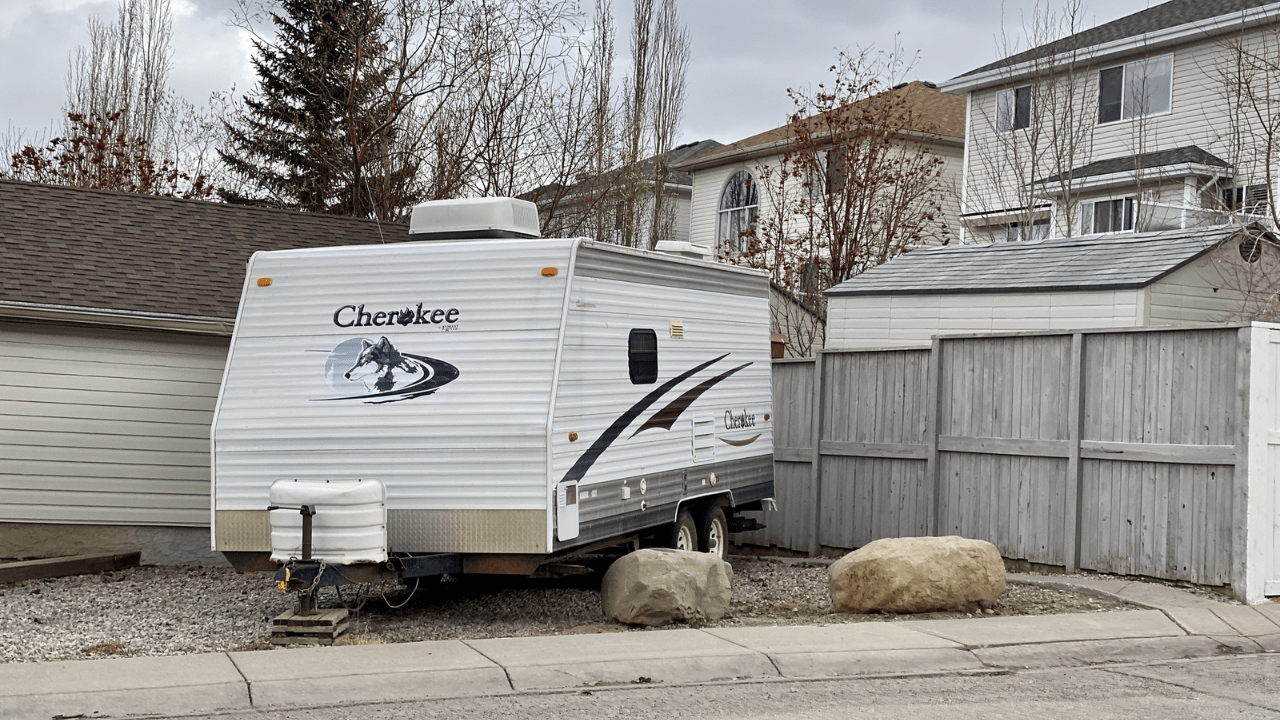

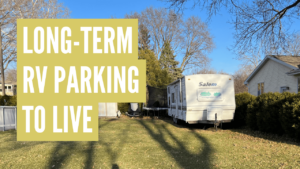
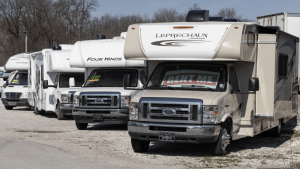
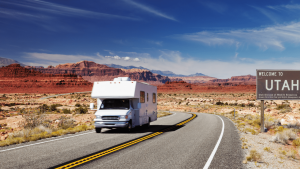
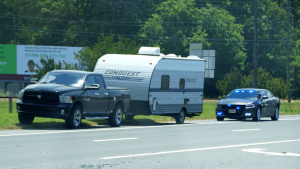

Write a comment